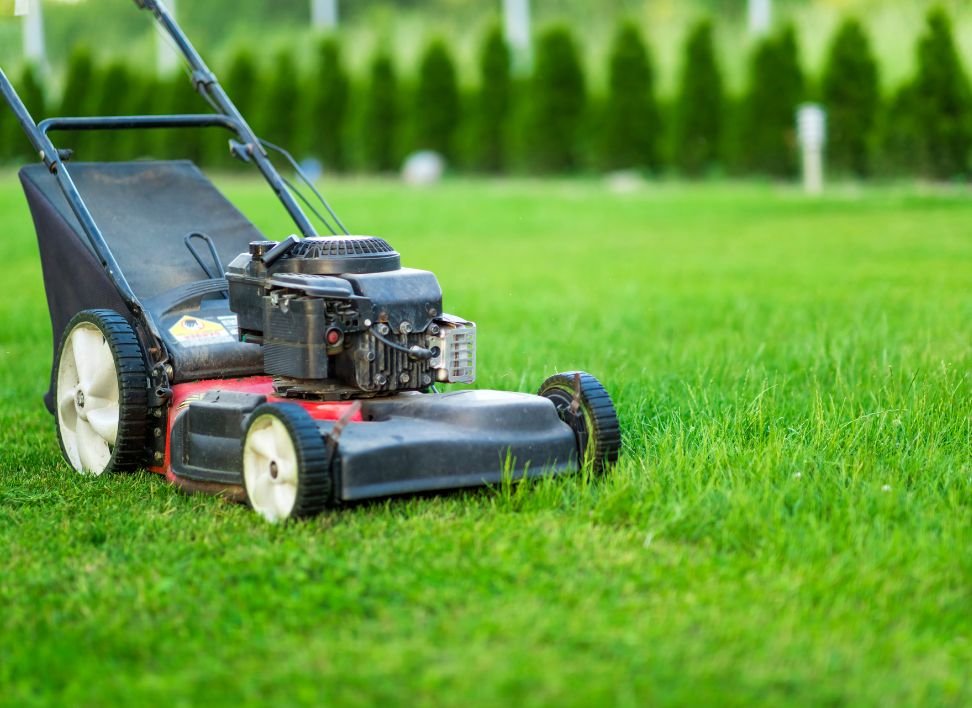The Harlow Lawn Care provides sustainable packages for domestic and commercial lawn care, which we design specifically to meet our clients’ needs. As one of the leading lawn care maintenance companies, we deliver exceptional landscape services that address individual lawn requirements. Our company provides both standard lawncare maintenance and specialized treatments to meet all your lawn care requirements.

Lawn Care Service
Ourmonthly lawn mowing service maintains your grass at optimal height, which supports healthy growth while creating a neat appearance. Our regular lawn maintenance schedule allows you to have a well-kept yard without the need for personal effort. Our experienced team delivers reliable lawncare services that your lawn requires.
Our team of professionals maintains meticulous attention to every aspect, which ensures your yard stays both beautiful and healthy throughout each month.

Lawn Care Service
Our complete spring and fall clean-up services help your lawn adapt to seasonal changes. Our team removes leaves, branches, and debris to create a neat lawn that will thrive in spring or maintain its rest during the winter months. Our service creates a clean, healthy yard environment throughout the entire year, which results in a beautiful lawn appearance.
The spring lawn clean-up service from our company provides homeowners with the necessary yard preparation for upcoming plant growth. Our team members dedicate themselves to removing all winter remnants, including debris and branches, and leaves, to provide your lawn with a new beginning. Our team offers fall lawn clean-up services, which help your yard transition between seasons while maintaining its excellent condition throughout the entire year.

Lawn Care Service
Our fertilizing and weed control service provides essential nutrients to optimize lawn growth and simultaneously prevents the growth of weeds. We apply high-quality fertilizers and precise weed control treatments, which result in a vibrant green lawn that remains healthy throughout the entire season.
Our lawn weed control service stands alone as the best solution to eliminate unwanted vegetation. Our superior lawn fertilization service works together with our weed control service to provide your grass with the necessary nutrients while protecting it from unwanted weeds. Our lawncare services specifically address dandelions and crabgrass, and other types of unwanted invaders. So, if you are in Ottawa or nearby and searching for lawn fertilization and weed control services near me, reach out to us

The aeration service operates within our Complete Care Package, which helps revive compacted soil while enhancing root development. The process of making small holes in the soil enables roots to receive air, water, and nutrients, which leads to stronger, resilient lawns. The package provides your lawn with complete care through scheduled fertilization, weed control, and regular mowing services. As one of the best lawn care maintenance companies, we deliver exceptional landscape services that maintain your lawn’s lush green appearance throughout the year.
Aeration services from our company provide the ideal remedy for soil compaction problems. The soil becomes dense through time, which blocks vital nutrients and air from reaching the roots. Our Complete Care Package includes our complete aeration service, which solves compacted soil problems by stimulating deeper root development. Our fertilization and weed control services work with our aeration services to develop stronger lawns that can handle seasonal difficulties better.
FREQUENTLY ASKED QUESTIONS
Our monthly lawn mowing service provides scheduled visits for lawn mowing alongside edge trimming and yard maintenance to achieve a neat and healthy appearance. We aim to set your grass at its perfect height for promoting strong growth while attaining a tidy appearance. Our lawncare services maintain optimal lawn health throughout every season.
Yes! Choosing the spring lawn clean-up services in your area will prepare your lawn for the upcoming growing season as fast as possible. Our team removes all leaves and branches from your lawn to create optimal growing conditions for your grass. You can search on Google for the best lawn care maintenance companies in your area which offer customized landscape services.
Ourlawn fertilization service provides high-quality fertilizers that supply your grass with essential nutrients. We provide weed control service for lawns, which removes unwanted weeds while nurturing your grass to grow stronger. The joint application produces a more robust and lively lawn throughout the season.
Our lawn aeration services enhance soil structure to enable roots to receive air and water, and nutrients from the soil. Healthy root development occurs because of this method, which produces a lawn that is stronger and more resistant to damage. Lawn aeration stands as a vital service component for companies that provide landscape services.
Absolutely! Our company provides budget-friendly lawn care packages that deliver complete lawn maintenance through mowing and fertilization and aeration, and weed control services. Contact us now to discover our area’s most affordable lawn care services from the best local provider.
You can find excellent lawn fertilization and weed control services at The Harlow Group. The Harlow Lawn Care team provides premium services that deliver healthy lawns without weeds. Our team delivers specialized care through various landscape services that match your requirements.